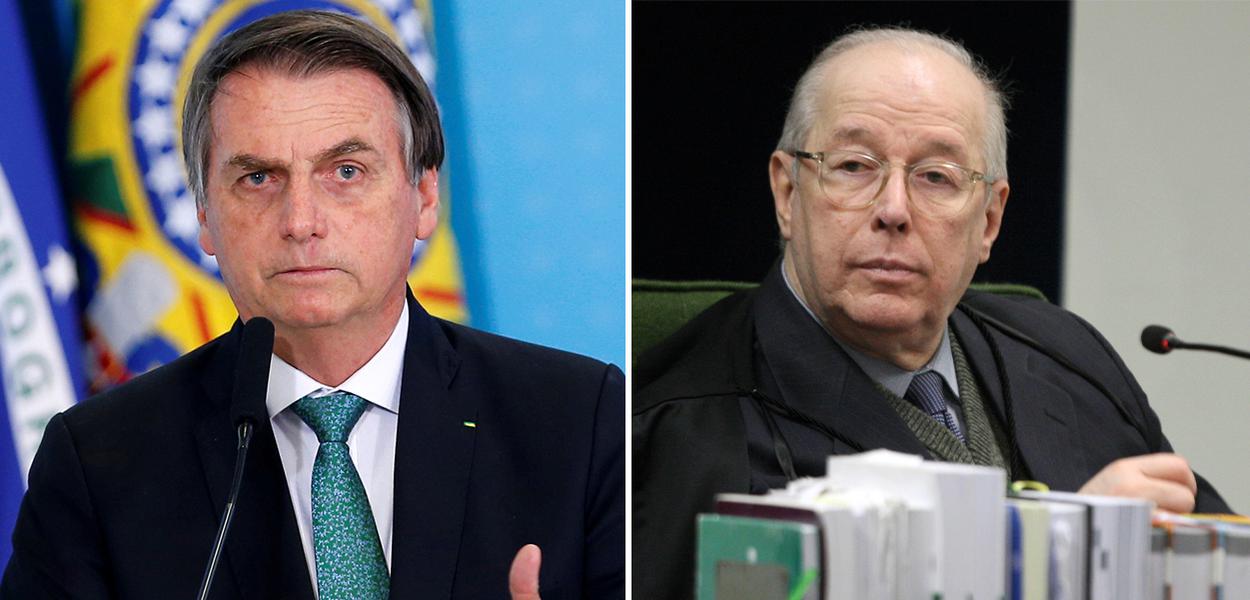RIO DE JANEIRO, BRAZIL – STF (Federal Supreme Court) Justice Celso de Mello denied President Jair Bolsonaro’s petition to have a written deposition in the inquiry in which the President is being investigated on charges of attempting to interfere in the Federal Police to benefit relatives.
The investigation was launched after Minister Sérgio Moro left the Justice portfolio claiming that the President had tried to interfere with the Federal Police command.
In his decision, Justice Celso de Mello states that the right to a written deposition is reserved only for authorities who testify as witnesses, which is not Bolsonaro’s case: he is a target of the inquiry.

The PGR (Prosecutor General’s Office) had advocated that Bolsonaro be allowed to provide written interrogatories, answering questions posed by investigators. But Justice Celso de Mello rejected the Prosecutor General’s arguments.
In the decision, the justice stated that, as a target of an investigation, the President could exercise his right to silence. Bolsonaro has denied any attempt to interfere with the Federal Police.
According to the Justice’s clerks, the decision had been ready since August 18th, but could only be signed now by Celso de Mello after the Justice returned from medical leave.
In June, Minister of Justice André Mendonça said the President would prefer to testify in writing. According to Mendonça, there are legal precedents in the STF that authorized the measure. In 2017, Justice Minister Luis Roberto Barroso authorized then-President Michel Temerto testi fy in writing before the federal police, as part of the port scandal inquiry.
The STF investigation against Bolsonaro was opened in April at the request of Prosecutor General Augusto Aras and authorized by Justice Celso de Mello, the rapporteur of the case at the STF.
Moro also figures as a target of the investigation. The Prosecutor’s Office is examining whether the ex-Minister committed a crime, if he lied by making his allegations against the President.
The inquiry stage serves to collect evidence. Bolsonaro’s testimony is one of the last steps in the inquiry.
It is then up to the PGR to decide if there are grounds to file a criminal indictment against either Bolsonaro or Moro, depending on the course of investigations.
Should the Prosecutor’s Office decide to indict the President, the case must be authorized by the Chamber of Deputies, by a two-thirds vote of legislators. After authorization, the STF must decide whether or not to open proceedings. If the case is approved by the STF, the President is automatically suspended from office for 180 days or until the case is completed, either by conviction or by acquittal.
Moro’s attorney, Rodrigo Sánchez Rios, stated in a note that the STF’s decision ensures equal treatment in the investigation of Moro and Bolsonaro, since the ex-Minister was heard in person by the PF. “Isonomy of treatment is an irrevocable constitutional requirement,” Rios said.
According to the Prosecutor’s Office, if the accusations are substantiated, Bolsonaro may have committed the crimes of misrepresentation, coercion in the course of proceedings, obstruction of justice, and passive corruption. Moro may be investigated for the crimes of slanderous accusation and crimes against honor.
It was in the scope of this inquiry that the famous April 22nd cabinet meeting video came to light. According to Moro, Bolsonaro pressured him in that meeting over leadership changes in the Federal Police. The President denies this, and says he was referring to his private security team.
In an excerpt from the April meeting, Bolsonaro says: “And I’m sorry about our intelligence service – everyone – it’s a disgrace, a disgrace, that I’m not informed, and I can’t work like this, it’s hard. So I will interfere. Period. It’s not a threat, it’s not an extrapolation on my part. It’s the truth.”
Source: UOL

